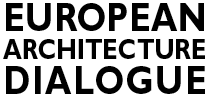Vol:III Workshop Cluster • WrocławIntro [CBU] [TLL] [LIS] [WRO] [INN] [SVQ] [TLV] [BER] [MRS] [KEL] [DR] Master |
- V:III_4. Workshop Cluster • Wrocław – Poland | Izabela Mironowicz
- V:III_4.1 [WRO] WS4 [C1] Workshop Programme & Results "PARK PRZEMYSŁOWY (Wrocław Industrial Park)"
Wrocław | Perspectives on inner urban and neglected industrial areas are investigated, understanding the Linke-Hofmann-Werke AG, now known as the Wrocław Industrial Park, as an example of an infrastructural 'urban periphery'. The activities of local players have been pioneering the site as well as development concepts by the predominantly neoliberal urban planning authorities which both are the starting point for the elaboration of alternative concepts and scenarios, which consider not only economic feasibility but also infrastructural, social and sustainable needs of future development. The workshop takes place in cooperation with members of the European network EUSS.
V:III_4.1 [WRO] WS4 [C1] Workshop Programme & Results "PARK PRZEMYSŁOWY (Wrocław Industrial Park)" |
Class-01: 14.04.-29.05.2011 Workshop 4 at Wrocław [WRO]
at Wrocław (Breslau, Vratislav), University of Technology
with International Master's Programme A.S.G. / Reiseuni_lab, Module "Urban Strategies"
Professor's Team:
Dr. inż. Arch. Izabela Mironowicz, town planner, Director for Studies in Planning (responsible) with an interdisciplinary team of lecturers and guest critics of Europe.
![[Fig.01] >>>Selected Results of the Workshop](../3.00_slideshow_cover-pics_web/V3_4.1_WRO_2011-05-27_WS4_5_Wroclaw_Final-Works_Jose-de-la-pena_1x1m_Class-01_520px.jpg)
[Fig.01] >>>Selected Results of the Workshop
Topic of the Workshop
Urban Design Project Programme: "Everyone designs who devises courses of action aimed at changing existing situations into preferred ones." (Herbert Simon)
Place: The Wrocław Industrial Park covers the area of a former rail cars factory. The area is 163 hectares large and includes existing infrastructure, available for rent and for sale to various enterprises – industrial or commercial. The Park is located conveniently in terms of transportation and distance from the city centre. The municipality supports and facilitates the development of that area by establishing favourable regulations. The organization is however realized by an informal association of the users of that area, with the biggest and strongest companies leading the way. In spite of the name of the Park, the companies operating there are not exclusively of industrial character.
"By studying unplanned urban systems and confronting them with planned urban systems, we can develop design strategies of improvisation in order to benefit and engage the underlying vibrant impetus of urban development. Confrontation between formal and informal systems, planned and unplanned city, gave an idea for looking for ways in which 'informal' processes contribute to a radical re-thinking of the space of the city. The project did not present a final result or the sizes of the blocks, functions or streets. It proposed a radical strategy to make a system, an open organic system where the site is always in process."
(Erko Luhaaru, Student Class-01, within the frame of "Design Reflection", summarizing all workshop experiences & individual results, 03.2012)
Location:
>>>Wagenbauanstalt Gottfried Linke, Breslau at Wikipedia
>>>Linke-Hofmann-Werke AG, Breslau
What we expect you to do?
- Scenario development strategy for Wrocław Industrial Park (20 years perspective) – 3 scenarios that have to include:
- The spatial arrangement, the programme and the concept of performance of the site and
- The influence of the site to the entire city
- TEXT, DIAGRAMS, SKETCHES, POETRY, FILM, NOVEL, etc.
- Urban design proposal of chosen scenario in every 5 years time section – the way of transformation.
- DRAWINGS, SKETCHES, DIAGRAMS, etc.
How to do it?
- Work teams = 3 students (diversity required)
Elements of the Programme:
- LECTURES
- DESIGN
- STUDY TOURS
- DEBATES
- PRESENTATIONS
- CRITS
- LEARNING FROM EXPERIENCE
Goal
- Inventory and analyses in order to understand a sense and the potential of the place (site and city-scale when required i.e. transportation system, greenery, centres, etc.)
- Scenario proposals and their influence to the city including idea about investors and tools of implementation
- Urban design concept of one chosen version of the scenario (plan, sections, perspective)
TUTORS TEAM IN WROCŁAW:
Giancarlo Cotella (Turin-Wrocław)
Stefan Netsch (Stuttgart-Amsterdam)
Judith Ryser (London)
Rudgier Smook (Amsterdam)
Josefina Lopez Galdeano (Granada-Bucharest)
Izabela Mironowicz
Wawrzyniec Zipser
Tadeusz Zipser
Zbyszek Maćków
Roman Rutkowski
Tomasz Ossowicz
Maciej Litwin
& Kasia Piskorek + Janek Barski
FINAL PRESENTATION:
27TH MAY 2011 with guests
[Programme: Dr. inż. arch. Izabela Mironowicz, 04.2011]
Bibliographic Information:
Mironowicz, Izabela, Workshop Cluster • Wrocław – Poland. In: Reiseuni Report | The Making of. European Architecture Dialogue. Jäger, Dagmar (Ed.); Pieper, Christian (Ed.) et al.; Reiseuni_lab: Berlin, 2017; Vol:III_4., ISBN:978-3-00-055521-3, DOI:10.978.300/0555213, https://www.reiseuni.eu/report/3.04_cluster-wroclaw/wroclaw.htm
